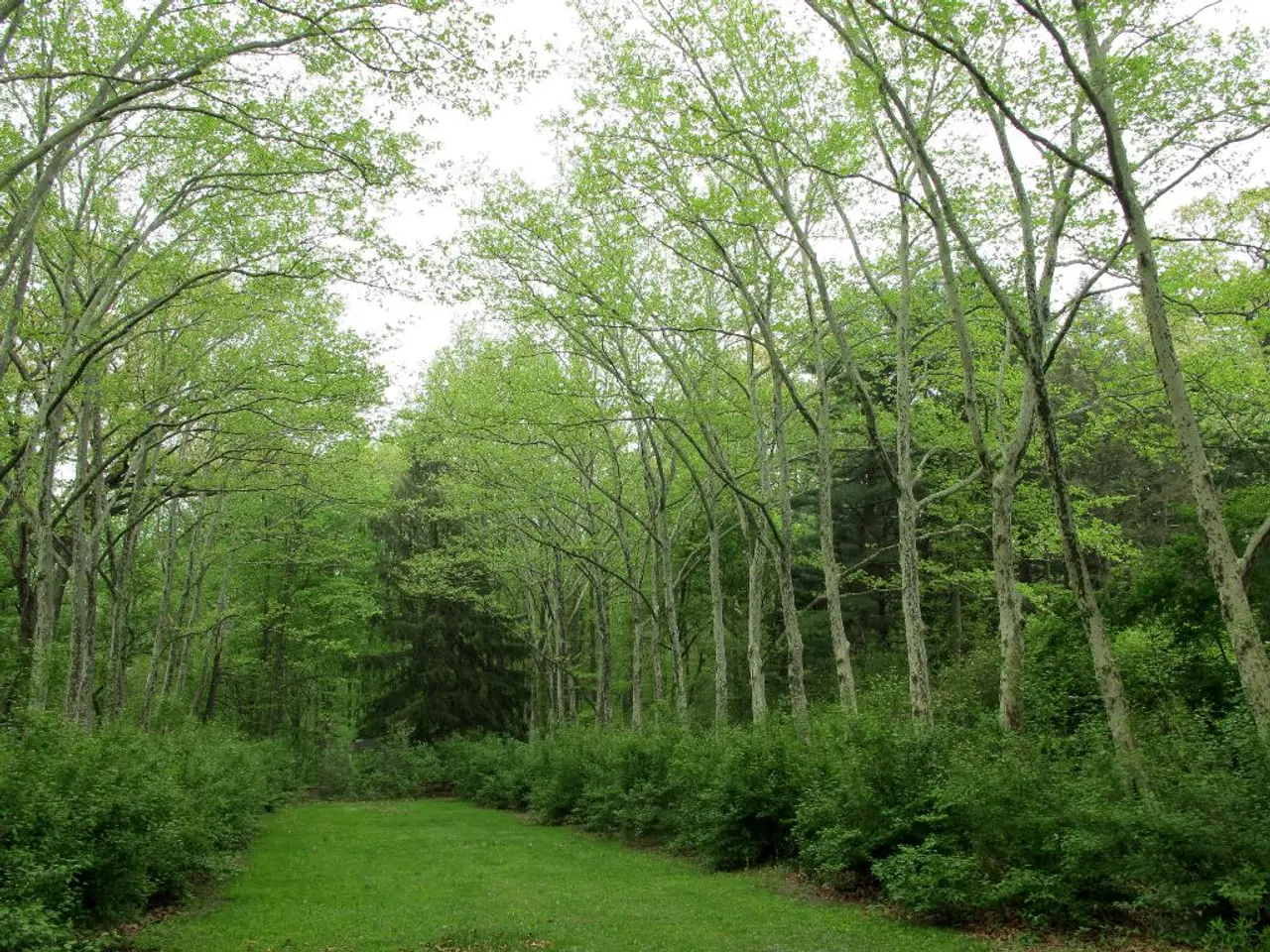Boosting the Execution of Biodiversity Advancement in Small, Moderate, and Previously Developed Projects (Brownfield Development)
In a bid to promote economic growth and nature recovery, the current UK government has launched a consultation seeking public opinion on the implementation of Biodiversity Net Gain (BNG) for specified development types. The proposals, which focus on minor, medium, and brownfield developments, aim to make BNG more flexible and easier to implement, but concerns have been raised about potential weakening of biodiversity protections.
The key proposed amendments include new and expanded exemptions for minor and medium-sized sites, allowing some developments to avoid delivering BNG altogether. Additionally, the government suggests using a simplified biodiversity metric for more complicated scenarios like brownfield sites, which may lead to oversimplified biodiversity assessments.
The consultation also explores ways to assist smaller developers, such as those for sites with 1-9 dwellings or under one hectare, by simplifying requirements and improving access to off-site BNG markets. Greater flexibility is proposed for what counts as ‘local’ delivery of biodiversity gains and the removal of penalties for delivering net gain away from the development site.
These changes have faced opposition from businesses and environmental NGOs who argue that removing or expanding exemptions for small and medium developments undermines biodiversity objectives and weakens policy integrity. The Wildlife Trusts and the Rethink Nature partnership (including groups like the Bat Conservation Trust and Buglife) emphasize the importance of maintaining strong BNG requirements to ensure nature recovery alongside development. They warn the proposals risk species losses and a move away from ecological expertise in assessments.
However, the government has acknowledged the challenges in implementing BNG and has committed £10 million funding to local planning authorities to help with recruitment of ecologists and creation of wildlife-rich habitats to support off-site credits.
In summary, the current proposals aim to make BNG more flexible and easier for minor, medium, and brownfield developments, but face criticism for potentially weakening biodiversity protections. The government is balancing developer ease with maintaining nature recovery, but consultation responses lean toward preserving existing BNG scope to avoid setbacks in biodiversity gains.
Key Points:
- Exemptions: New and expanded exemptions for minor and medium sites could weaken overall biodiversity protection.
- Biodiversity Metric: Simpler metrics for complex/brownfield sites may oversimplify biodiversity evaluation.
- Local Delivery & Penalties: Expanding what counts as local and removing penalties for off-site gains may dilute local nature recovery impact.
- Assistance to Smaller Developers: Simplification and better off-site market access may lower the bar rather than fixing issues.
- Funding: £10m for local authorities to improve BNG implementation acknowledges challenges but effectiveness TBD.
These points reflect the government consultation as of mid-2025, with further policy detail pending finalized decisions. The government is consulting separately on BNG implementation for nationally significant infrastructure projects. Biodiversity net gain ensures development has a positive impact on biodiversity compared to pre-development, and is a method for creating and improving natural habitats.
- The government's proposal to introduce new and expanded exemptions for minor and medium-sized sites in the Biodiversity Net Gain (BNG) implementation may possibly dilute overall biodiversity protection, according to critics.
- In the realm of health-and-wellness and environmental-science, the use of a simplified biodiversity metric for complex and brownfield sites could potentially lead to an oversimplification of biodiversity evaluations, which could have detrimental effects on biodiversity conservation.




